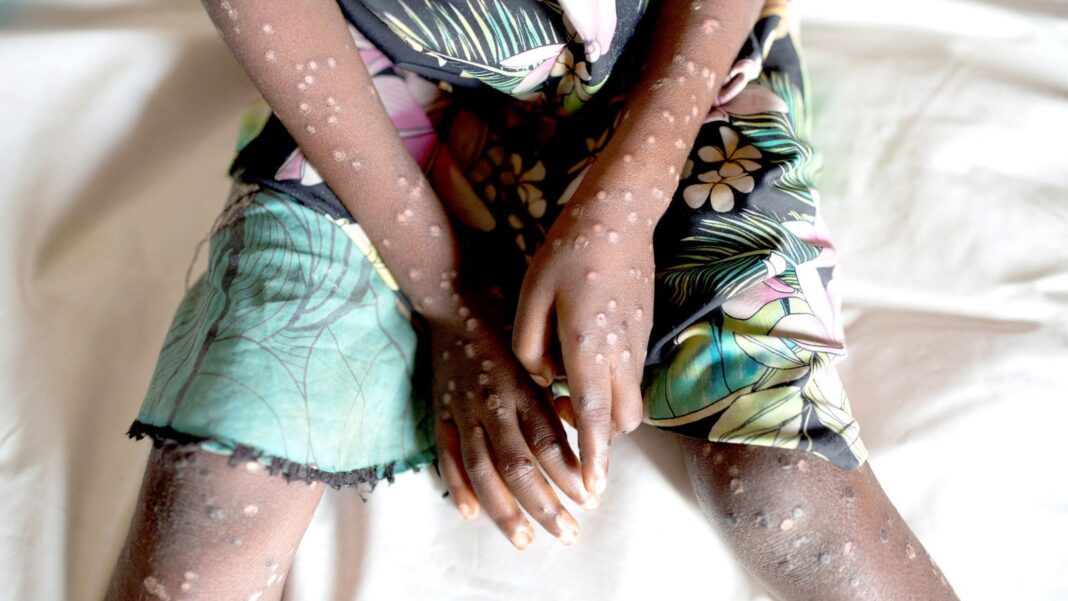Surveillance and the sharing of mpox vaccines with Africa will be integral to preventing a global outbreak of the virus, the World Health Organization’s Europe director has said.
Mpox was declared a global emergency by the WHO last week, with a new strain spreading across Africa at an alarming rate and causing more than 571 deaths on the continent this year.
Doctor Hans Kluge said while “there’s no need to panic”, people “always need to be vigilant” to ensure the world doesn’t suffer from yet another global health emergency just years after it was brought to a standstill by COVID-19.
“The key message from me to the countries is surveillance,” WHO’s Europe director told Sky News.
“Good surveillance, knowing what’s happening because you never know how a virus may behave in the future.”
What are the symptoms of mpox?
Common symptoms of mpox are a skin rash or pus-filled lesions which can last two to four weeks.
The rashes can be located anywhere on the body and some people may only have one, while others can have hundreds or more.
These are other symptoms listed by the CDC:
– Fever
– Chills
– Swollen lymph nodes
– Exhaustion
– Muscle aches and backache
– Headache
– Respiratory symptoms (e.g. sore throat, nasal congestion, or cough)
The WHO says people may start to feel unwell before they get a rash or skin lesions, while for others the skin symptoms can be the first or only sign.
Dr Kluge said he was “worried for the African region” and about cases spreading further, as more than 17,000 have already been recorded on the continent this year.
He called on European countries to send vaccines to Africa and “not sit” on them in order to prevent another global pandemic.
More on this story:
How does mpox spread and what is the risk to the world?
Man who contracted mpox describes ‘horrendous’ symptoms

An mpox vaccine. File Pic: AP
“This is the big test,” he said. “Just to see, did we as an international community learn from COVID-19 or not? Are we going to halt or to share the vaccines?”
Asked about measures such as airport screenings being introduced, Dr Kluge said people “may come easily into the country without any obvious symptoms”.
According to the UK government’s website, the incubation period for mpox is between five and 21 days. People usually recover from the “self-limiting” illness within a few weeks, it added.
Dr Kluge added: “Also, we have to be careful not to push people away because they will find alternative routes like we saw [during] COVID.
“So the key for now in Europe is good surveillance, particularly in high risk groups.”

Keep up with all the latest news from the UK and around the world by following Sky News
The disease spreads through close contact with infected people, including via sex and other skin-to-skin contact.
The latest outbreak in Africa started with the spread of an endemic strain known as Clade 1.
The new variant that has emerged, known as Clade 1b, appears to spread more easily through close contact, particularly among children.
Dr Kluge said it’s important people are aware “there are many unknowns” about mpox, including on its transmissibility.
He said while, as things stand, “this is not a COVID-19”, countries worldwide must keep following what is happening as a virus can always behave “unexpectedly”.







